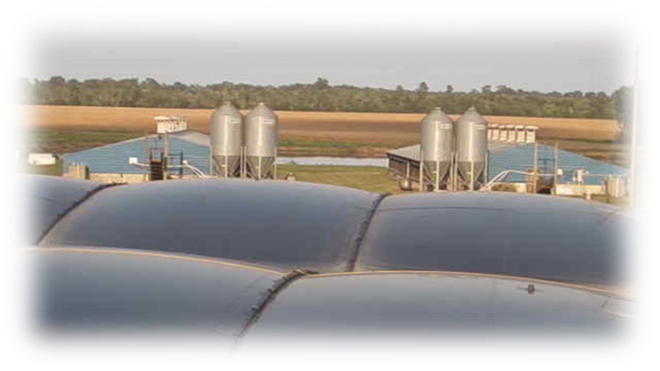 Last week, Smithfield Foods announced its plan to reduce its greenhouse gas emissions 25% by 2025. This substantial commitment involves expansion of manure-to-energy projects across several states in which they have swine farms and contract growers, including the states of North Carolina, Missouri, and Utah.
Last week, Smithfield Foods announced its plan to reduce its greenhouse gas emissions 25% by 2025. This substantial commitment involves expansion of manure-to-energy projects across several states in which they have swine farms and contract growers, including the states of North Carolina, Missouri, and Utah.
From the press release unveiling their efforts, describing their Commitment to Renewable Energy:
With a longstanding commitment to innovation and continuous improvement, Smithfield has been researching and exploring sustainable ways to transform manure into energy for many years.
“Now, thanks to the dedication of our team members, technological advancements, and a viable market for RNG, ‘manure-to-energy’ projects are a sustainable endeavor for hog farms,” said Stewart Leeth, vice president of regulatory affairs and chief sustainability officer of Smithfield Foods. “We are proud to expand our efforts across the country, shrinking our environmental footprint and investing in the protection of our planet’s resources.”
Smithfield was an advocate and key supporter of Cavanaugh’s work with Optima Bio to bring the first renewable natural gas project to North Carolina. The Optima KV project, which converts swine manure into renewable natural gas (RNG), was the first connect to the natural gas pipeline in the state. You can see more of the Optima KV project in the Smithfield Renewables video.
“These projects, whether on a farm or at a plant, strengthen two key industries in North Carolina: energy and agriculture,” said Gus Simmons, Director of Bioenergy at Cavanaugh & Associates. “Smithfield is leading the charge in expanding the state’s renewable energy portfolio while creating new economic and environmental benefits for the agriculture industry.”
Visit www.cavanaughsolutions.com/bioenergy/projects/optima-kv/ to learn more about the Optima KV project.

